Critique for What?
Great Barrington Books
Bringing the old and new together in the spirit of W. E. B. Du Bois

An imprint edited by Charles Lemert

Titles Available
Keeping Good Time: Reflections on Knowledge, Power, and People
by Avery F. Gordon (2004)
Going Down for Air: A Memoir in Search of a Subject by Derek Sayer (2004)
The Souls of Black Folk, 100th Anniversary Edition
by W. E. B. Du Bois, with commentaries by Manning Marable, Charles Lemert, and Cheryl Townsend Gilkes (2004)
Sociology After the Crisis, Updated Edition
by Charles Lemert (2004)
Subject to Ourselves
by Anthony Elliot (2004)
The Protestant Ethic Turns 100: Essays on the Centenary of the Weber Thesis
edited by William H. Swatos, Jr., and Lutz Kaelber (2005)
Postmodernism Is Not What You Think
by Charles Lemert (2005)
Discourses on Liberation: An Anatomy of Critical Theory
by Kyung-Man Kim (2005)
Seeing Sociologically: The Routine Grounds of Social Action
by Harold Garfinkel, edited and introduced by Anne Warfield Rawls (2005)
The Souls of W E. B. Du Bois
by Alford A. Young, Jr., Manning Marable, Elizabeth Higginbotham, Charles Lemert, and Jerry G. Watts (2006)
Radical Nomad: C. Wright Mills and His Times
by Tom Hayden with Contemporary Reflections by Stanley Aronowitz, Richard Flacks, and Charles Lemert (2006)
Critique for What? Cultural Studies, American Studies, Left Studies
by Joel Pfister (2006)
Everyday Life and the State
by Peter Bratsis (2006)
Forthcoming
Thinking the Unthinkable: An Introduction to Social Theories
by Charles Lemert
First published 2006 by Paradigm Publishers
Published 2016 by Routledge
2 Park Square, Milton Park, Abingdon, Oxon OX14 4RN
711 Third Avenue, New York, NY 10017, USA
Routledge is an imprint of the Taylor & Francis Group, an informa business
Copyright 2006 Joel Pfister
All rights reserved. No part of this book may be reprinted or reproduced or utilised in any form or by any electronic, mechanical, or other means, now known or hereafter invented, including photocopying and recording, or in any information storage or retrieval system, without permission in writing from the publishers.
Notice: Product or corporate names may be trademarks or registered trademarks, and are used only for identification and explanation without intent to infringe.
Library of Congress Cataloging-in-Publication Data
Pfister, Joel.
Critique for what? : cultural studies, American studies, Left studies / Joel Pfister; afterword by Charles Lemert.
p. cm.
Great Barrington books.
Includes bibliographical references and index.
ISBN-13: 978-1-59451-225-4 (hc)
ISBN-10: 1-59451-225-6 (hc)
1. Culture Study and teaching United States. 2. CultureStudy and teaching Great Britain. 3. Americanization. 4. Criticism. 5. New Left Great Britain. 6. United StatesStudy and teaching. I. Title.
HM623.P45 2006
306.07073dc22
2006001601
Designed and Typeset by Straight Creek Bookmakers.
ISBN 13: 978-1-59451-226-1 (pbk)
MY CULTURAL STUDIES AND AMERICAN STUDIES SEMINAR AT WESLEYAN University, which I have taught in one form or another since 1988, has been this books laboratory. I am indebted to my lively students for our experiments. Previous classroom adventures set the stage for this project. James Shentons seminar on radical history and Sacvan Bercovitchs course on American literature at Columbia, Alan Sinfields and Peter Stallybrasss teaching at the University of Sussex, Eric Mottrams influence at the University of London, and much of my American studies work at Yale, with Alan Trachtenberg, Bryan Wolf, Dick Brodhead, Jules Prown, Vincent Scully, Fredric Jameson, David Montgomery, Jean-Christophe Agnew, and others, have enlightened me. I dedicate this book to five inimitable thinkers whose ideas, creativity, life force, decency, and friendship I have long treasured: Alan Trachtenberg and Bryan Wolf; one of my dear British friends, Clive Bush; and two Wes colleagues, Dick Ohmann and Rich Slotkin.
Sarah Winter and Dick Ohmann generously read and improved the book. Two other brilliant friends read most of it and made it better, David Lubin and Rich Lowry. Khachig Tllyan, Henry Abelove, Laura Wexler, and Joseph Entin commented on and tightened parts of it. Paul Stephens, a terrific British friend from the University of London who now teaches at Stavanger University in Norway, sent me material on British politics that I found illuminating. Alan Sinfield kindly engaged in an e-mail exchange about the history of cultural studies at Sussex. Michael Denning, my former Yale classmate, spent about ten hours one day in 1990 discussing whats at stake in cultural studies. Then Hazel Carby, my former Wesleyan colleague, joined the fray. They later introduced me to Paul Gilroy, who offered more critical perspectives.
My beloved Lisa Wyantfull of ideasgot into the act and polished the introduction and final chapter. Her intelligence, passion, artistry, and politics have sustained me on both sides of the Atlantic. I wrote this book in New Haven, Brooklyn, Paris, and Branford. The Brooklyn site was my loving moms warm home, where I grew up. Elizabeth Pfister, through her own example, inspired me to try to do some good in the world. I miss her. Jordan Pfister, my brother, gave me some good critical perspectives.
Wesleyan University, which provided me with several sabbaticals and leaves, as well as research funds to buy books, did much to make this project doable. A faculty fellowship at Wesleyans Center for the Humanities in spring 2001 advanced my research and writing. The encyclopedic Henry Abelove was a most gracious and wise director of the center. As usual, the librarians at Wesleyan and Yale have been exemplary.
Numerous institutions have given me the opportunity to try out ideas, approaches, and questions. Priscilla Wald arranged for me to speak on American studies and cultural studies at Columbias Center for American Cultural Studies in 1993. Maria Farland was responsible for my invitation to hold forth on the transnationalizing of American studies at Columbias Humanities Center in 2000. Rachel Adams invited me to lecture on in a keynote address at a University of Chicago Society of Fellows conference on agency in 2001.
In the fall of 1989 I was lucky to bump into Jonathan Freedman, a founding editor of the Yale Journal of Criticism. Happily, he asked me to write a long review essay on either cultural studies or American studies. Wesleyan had hired me in 1987, after a two-year stint as lecturer in American studies at Yale, partly to help develop a doctoral program in cultural studies (which never materialized). So I had a keen interest in fusing Jonathan s options. The result was The Americanization of Cultural Studies,


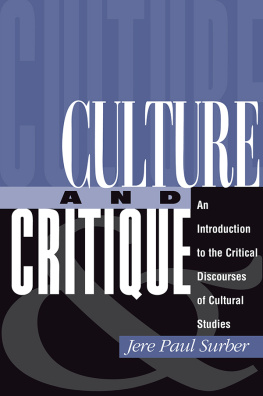
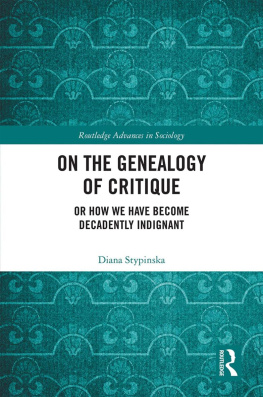
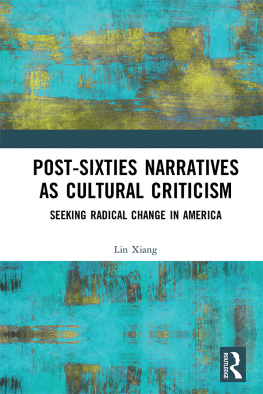
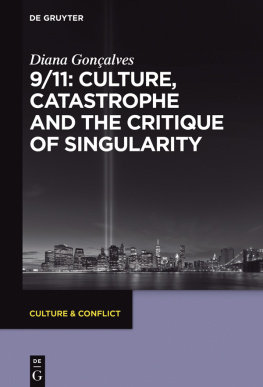
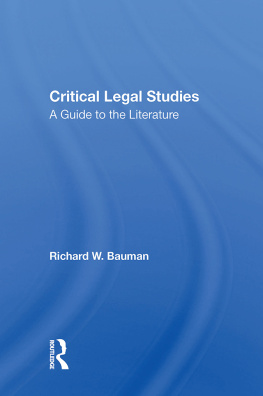
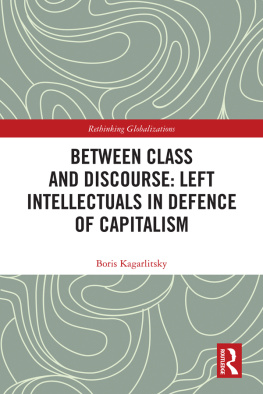
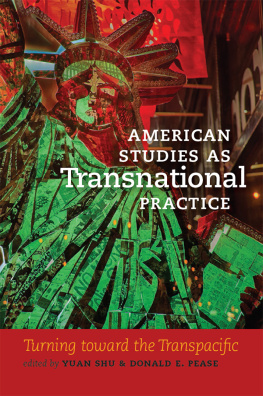
 An imprint edited by Charles Lemert
An imprint edited by Charles Lemert